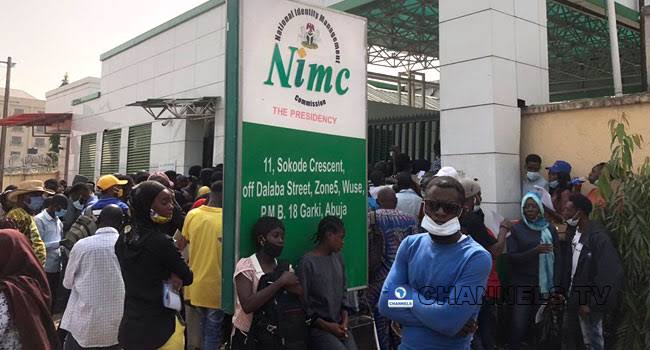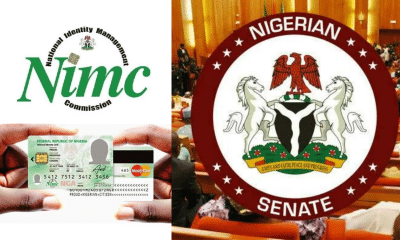Nigeria News
NIMC Promises To Address National Identification System Challenges

The National Identity Management Commission (NIMC) has reiterated its dedication to surmounting the obstacles currently impeding the establishment of a reliable and universally accepted national identification system in Nigeria.
Naija News reports that this assurance comes amidst a range of challenges, including infrastructural and logistical hurdles affecting the National Identification Number (NIN) enrollment processes.
During a recent meeting with the Senate Committee on National Identity and National Population in Abuja, Engr. Abisoye Coker-Odusote, the Director General and Chief Executive Officer of NIMC, underscored the commission’s resolve. The session, led by Senator Gbenga Daniel, the committee’s Deputy Chairman, focused on addressing the commission’s operational difficulties and devising strategies for improvement.
In a statement issued by Ayodele Babalola, the DG’s Technical Adviser on Media, Engr. Coker-Odusote expressed her gratitude for the committee’s proactive involvement and valuable contributions. She emphasized NIMC’s eagerness to work alongside pertinent stakeholders to fulfil its mission.
“The director-general’s participation in the Senate Committee’s meeting reflects NIMC’s commitment to uphold the highest standards of transparency and accountability. And stakeholder engagement in its efforts to strengthen Nigeria’s identity management infrastructure,” the statement read.
Moreover, Mrs. Coker-Odusote highlighted the commission’s ongoing initiatives aimed at bolstering service delivery and operational efficiency and expanding the reach of NIN enrollment services nationwide.
The committee recognized NIMC’s pivotal role in the country’s data management, emphasizing its significance for security, planning, and national development. Senator Daniel assured of the Senate’s support in addressing the commission’s challenges, highlighting the importance of teamwork and national interest in NIMC’s operations.
This dialogue comes against the backdrop of widespread frustration among Nigerians over the cumbersome NIN enrollment process, which is crucial for linking bank accounts and telephone numbers.
The Central Bank of Nigeria recently mandated a ‘Post No Debit’ restriction on bank accounts without a Bank Verification Number (BVN) and NIN, effective from April 2024, further underscoring the urgency of improving the enrollment procedure.
The NIN is also necessary for obtaining or renewing passports through the Nigeria Immigration Service and for registering with various examination bodies, including the Joint Admission Matriculation Board (JAMB), highlighting its significance in multiple facets of Nigerian life.








